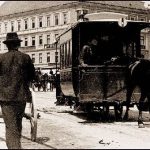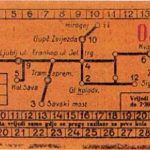The company’s revenue in the first six months of 2017 was HRK 20 million lower than in 2016.
Introducing 4-kuna tickets was great for the budget of people living in Zagreb, but not for ZET, Tportal reports on October 13, 2017.
According to the company’s half-yearly (January-June) pre-consolidated financial statements, introducing the cheaper tickets and merging three tariff zones into one has led to a decrease in ZET’s revenue – the company earned HRK 19.6 million less than in the same period last year.
The new ticket and the single tariff zone were introduced in February and March, right before the local elections, as Tportal reports, because the citizens have asked Mayor Milan Bandić to do so.
The Mayor applauded the citizens’ suggestion, stating that he would give a medal to the old lady who approached him at the Main Square and asked him to introduce cheaper and shorter tickets. Before that, the only possible option was a ten-kuna ticket, which was valid for 90 minutes.
The changes have resulted in 11.1 million 4-kuna tickets being sold, but also in a huge decrease in ten-kuna ticket sales, as well as monthly and yearly passes.
When compared to the same period last year, there were 51,955 fewer monthly passes sold in 2017, as well as 4,883 fewer yearly passes and 33,000 fewer day tickets.
If we compare ZET’s total profit in the same period, the company’s profit has gone down by HRK 28.3 million. Their loss of revenue in January-June 2017 amounted to HRK 87 million, while the loss of revenue for the same period in 2016 was HRK 58.7 million.
According to the company, the main reason for this is reduced profits from selling tickets (HRK 19.6 million) and reduced profit from other business activities (HRK 13.2 million).
The report ends with the conclusion that the “transport of passengers must remain affordable for all users to result in a satisfactory redistribution of individual and public transport with the aim of achieving a balanced transport system in the city.”
Translated from Tportal.hr.










